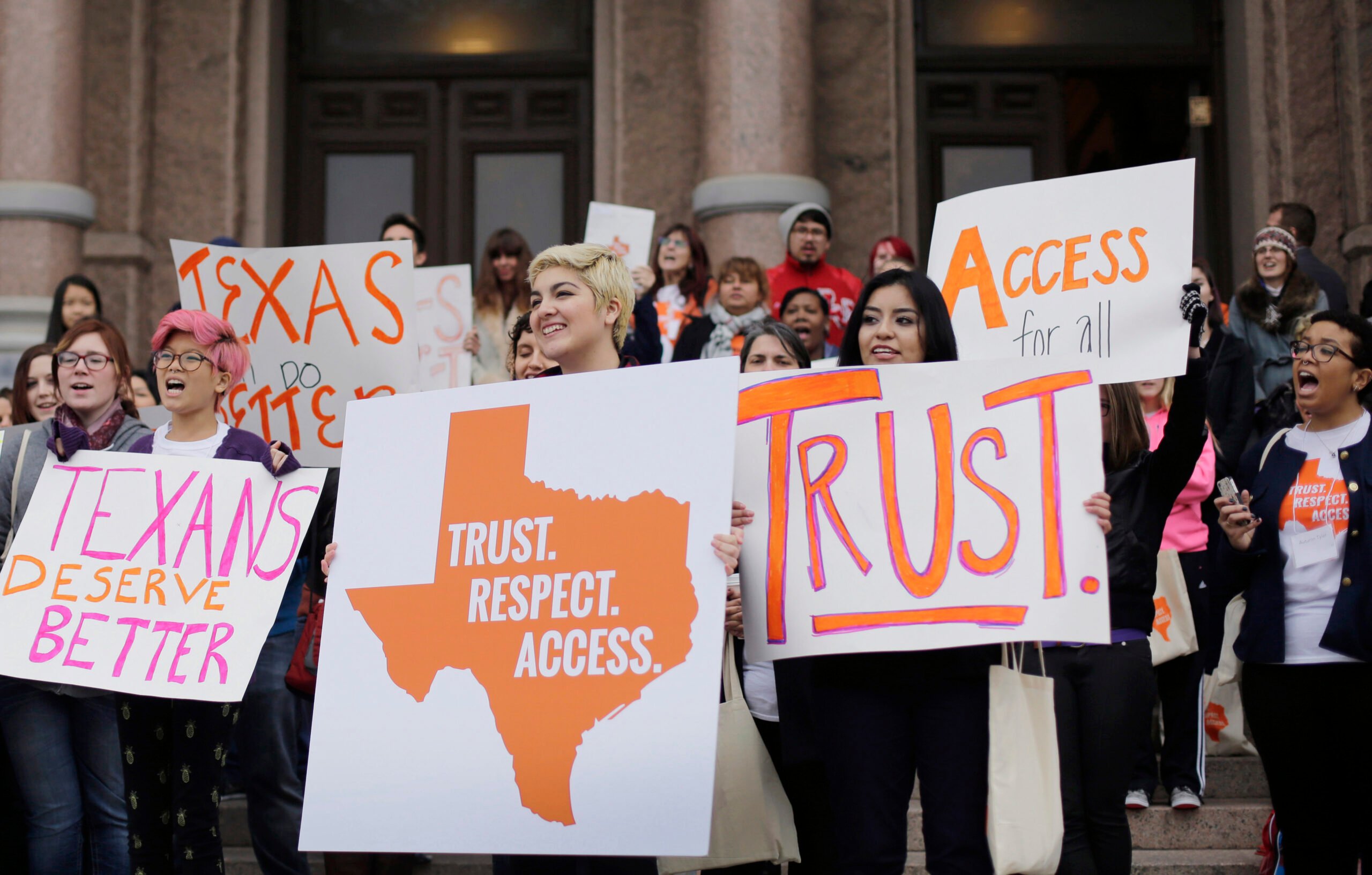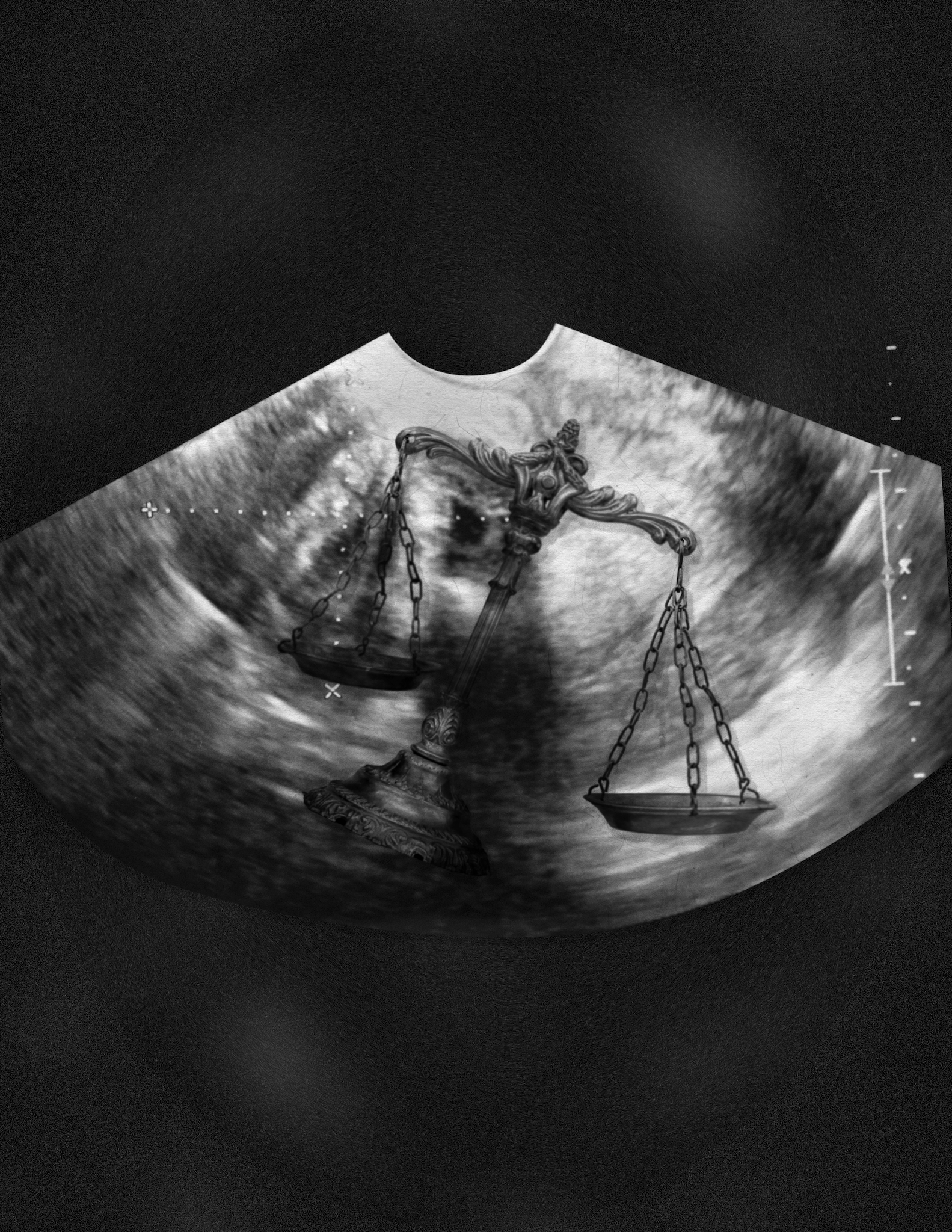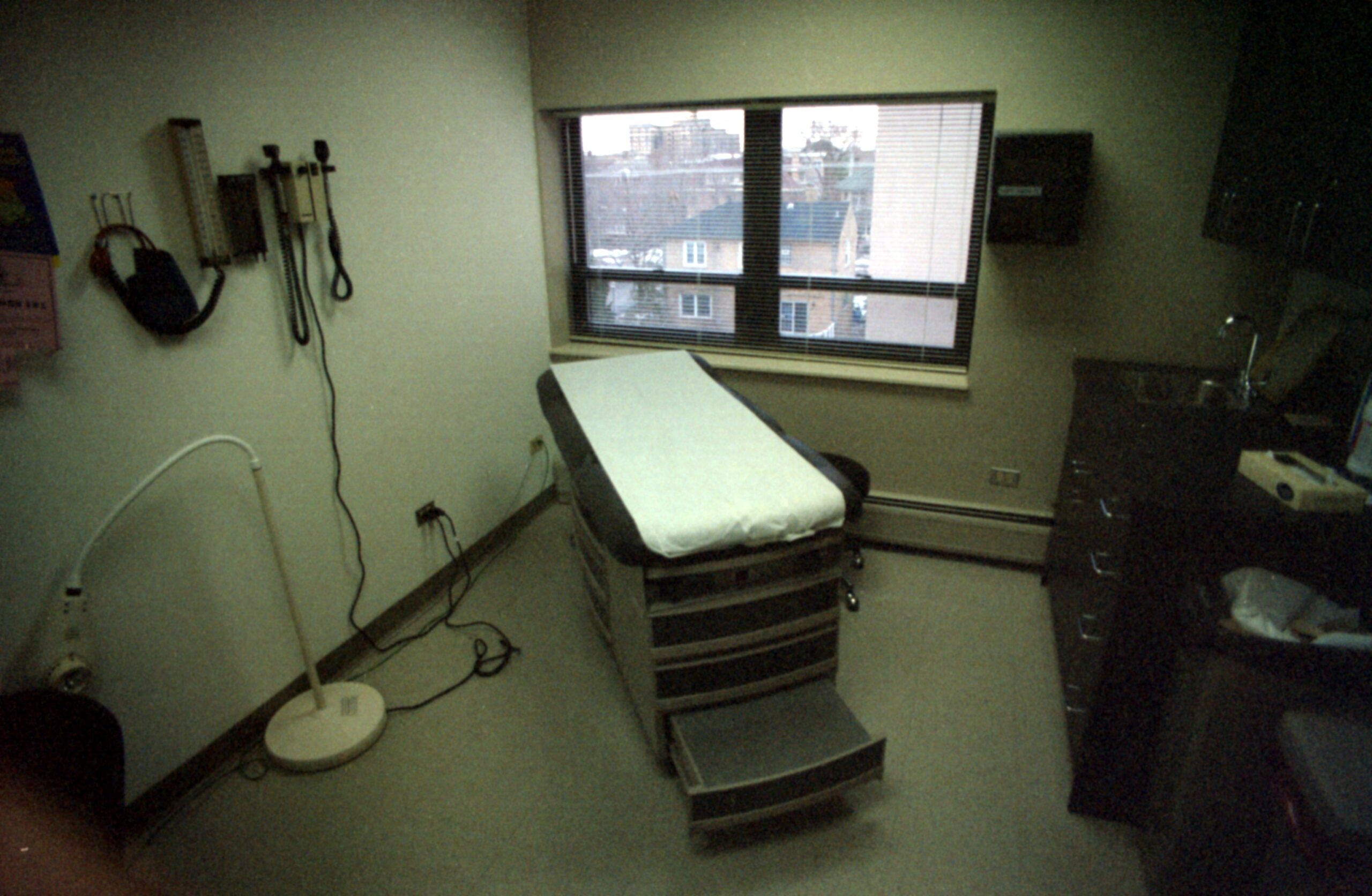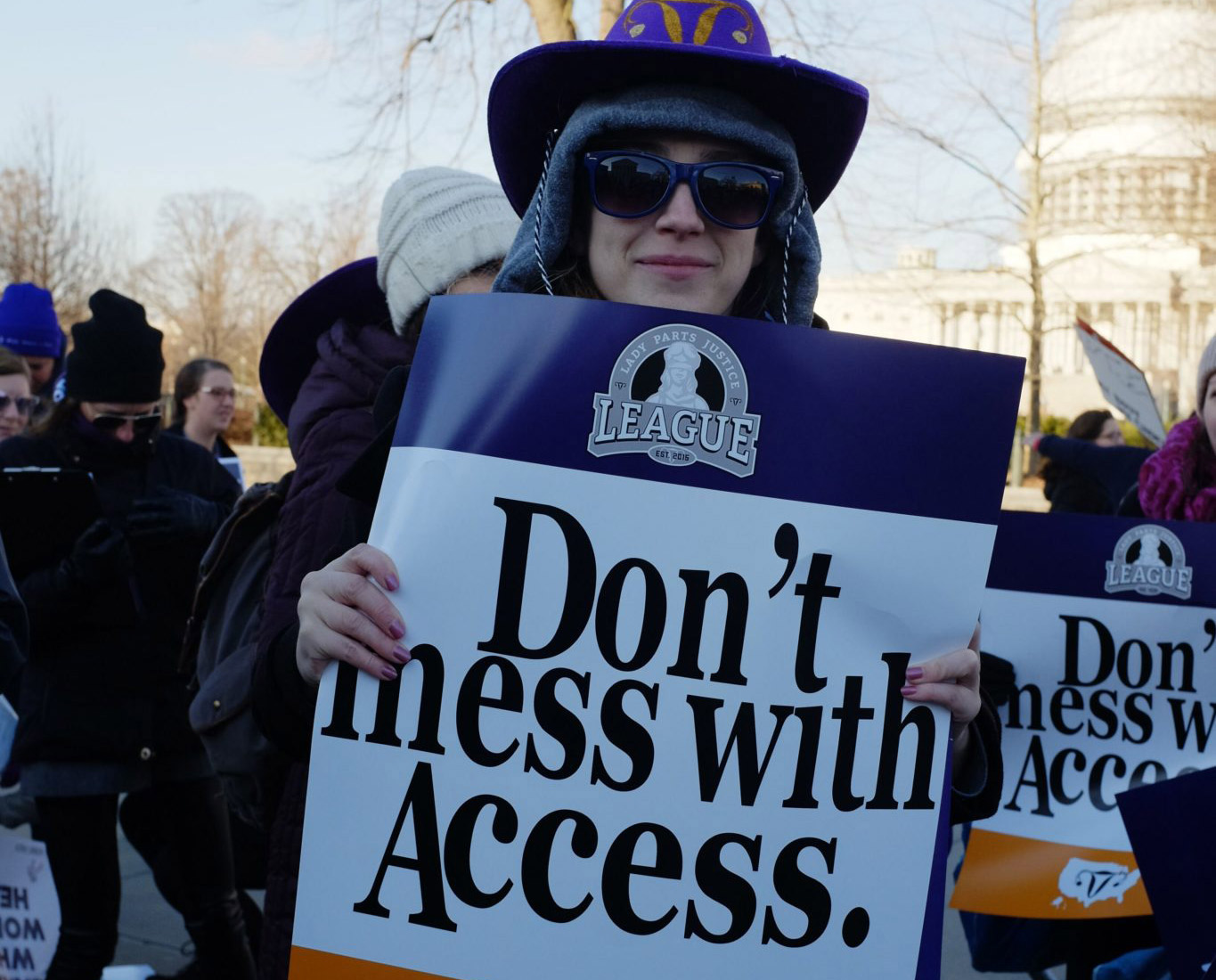
Texas Has the Most Cities More than 100 Miles from an Abortion Clinic, Study Finds
Texans in some cities must travel as far as 300 miles one-way for the procedure.

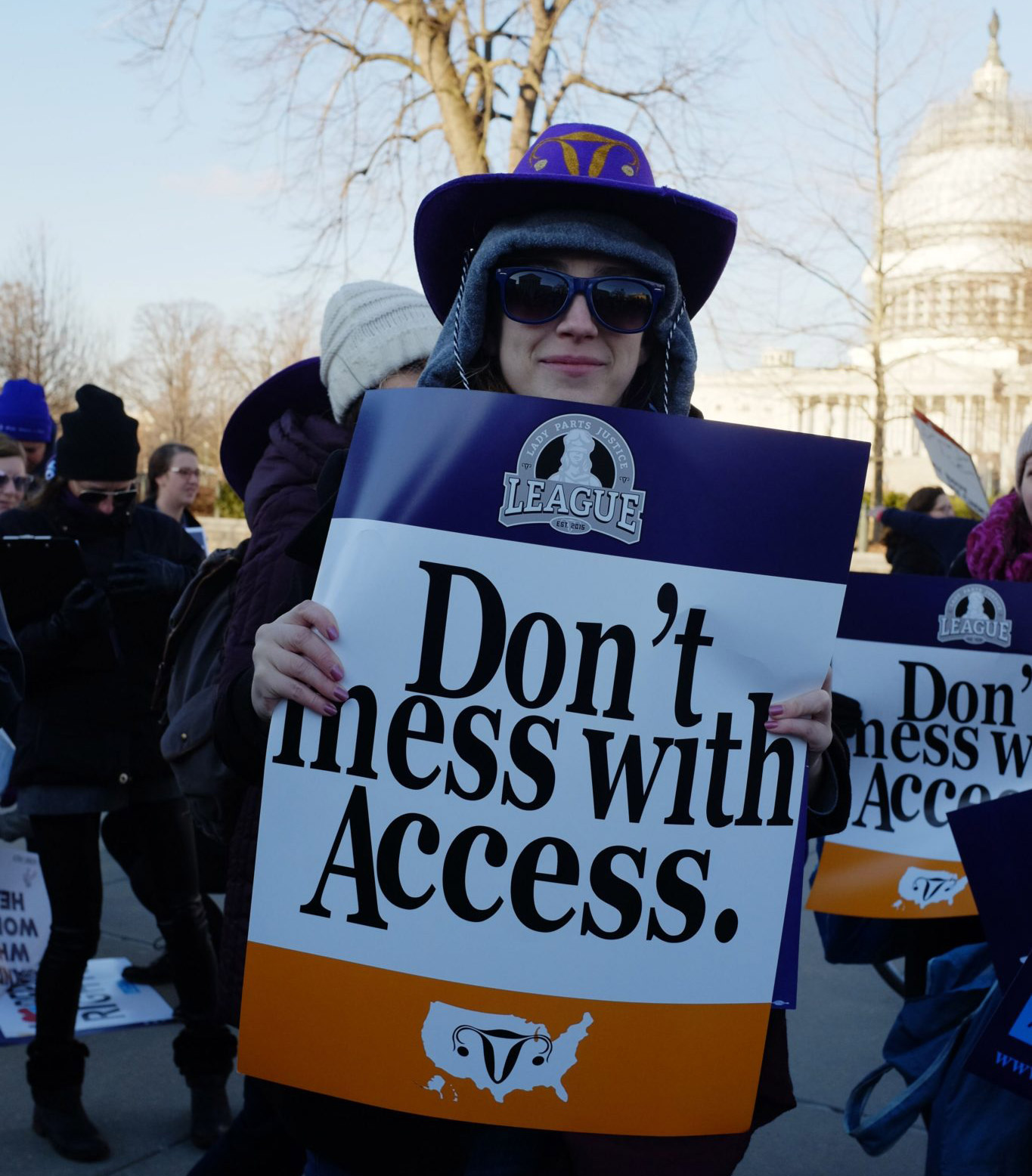
Health care “deserts” are often considered to be a rural phenomenon, but a study published this week illustrates the degree to which the wave of anti-abortion legislation in red states has wiped out abortion access even in higher-population areas.
This is especially true in Texas, where a sweeping anti-abortion law in 2013 shuttered more than half the clinics in the state, leaving wide swaths of West and South Texas without a single provider. Texas now has 10 cities of more than 50,000 without an abortion clinic within 100 miles, according to a study published Monday in the Journal of Medical Internet Research. That’s more than any other state.
In 2016, the U.S. Supreme Court struck down Texas’ omnibus anti-abortion law, House Bill 2, but the damage to abortion access has proved to be long-lasting. The law forced two dozen of the more than 40 abortion clinics in the state to close, and only a few have reopened. Texans in some metropolitan areas still must travel as far as 300 miles one-way for the procedure, according to the study.
Cities in red are more than 100 miles from the nearest abortion facility.
Of the five cities where people live the farthest from abortion clinics in the United States, four are in West Texas, according to the study. Patients in Lubbock must travel the farthest distance of the four — 308 miles one-way to the closest clinic in Fort Worth. That’s the second farthest in the country. (Rapid City, South Dakota is 318 miles from a clinic.) Midland and Odessa are also among the fives, as well as Amarillo, where the closest option for an abortion is in Oklahoma.
“The cost and logistical burdens of traveling that far, as well as the cost of gathering funds to pay for the abortion, may be too much for some people, who may be forced to continue an unwanted pregnancy,” Alice Cartwright, a project director at the University of California at San Francisco, and the study’s lead author, wrote in an email.
A 2015 survey found that at least 100,000 women in Texas had ever tried to self-induce an abortion.
In Texas, the distance is compounded by state laws that require patients to visit the same doctor twice, separated by at least 24 hours, for a mandatory sonogram ahead of the procedure. The requirement means women must make multiple trips totaling hundreds of miles, or miss work and pay for a hotel room. For low-income women in particular, that can be a significant barrier. Increased distance to the nearest abortion clinic was associated with a drop in the number of procedures in Texas from 2012 to 2014, a study published last year found.
“The cost and logistical burdens … may be too much for some people, who may be forced to continue an unwanted pregnancy.”
Meanwhile, the Texas Legislature — where some conservatives have called for an end to legal abortion — passed a law in 2017 that bans insurance plans from covering abortions. Two other new state anti-abortion laws, currently tied up in court, would further restrict access and place additional burdens on clinics, reproductive rights advocates say. Several other anti-abortion proposals failed to pass last session, including one that could make it legal to charge women and providers with murder.
Limited access to abortion can have major health implications, Cartwright, the study’s lead author, notes. “Since maternal morbidity and mortality is a huge public health problem in Texas, women forced to carry pregnancies to term are potentially at more health risk.”

